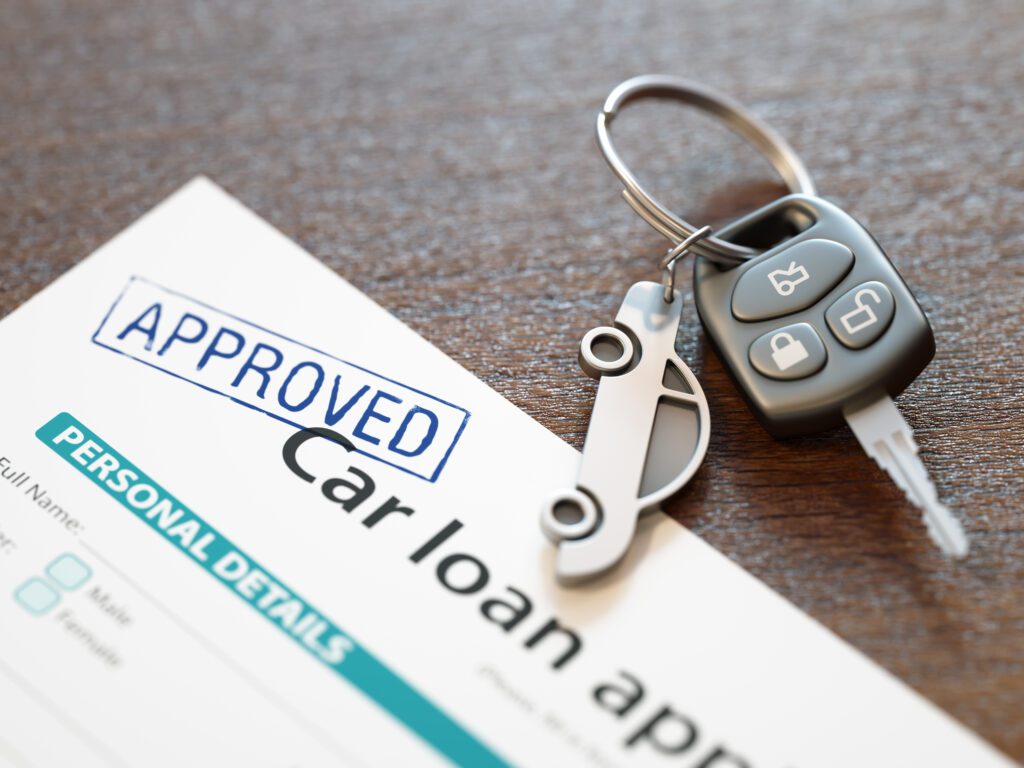Refinancing a car loan could mean massive monthly savings. The idea is you take out a new loan to pay off your existing auto loan, ideally with a lower interest rate or monthly payment. Whether refinancing makes sense depends on your current loan terms, interest rates, and financial situation. Here’s what you need to know about the pros and cons of refinancing your car loan and how to make sure your refinancing goes well:
Why Your Credit Score Matters When Refinancing a Car
Before considering the pros and cons of refinancing a car, it’s important to first consider your credit score.
Your credit score will be the main factor that decides whether or not you will save money on an auto-loan refinance. Lenders view borrowers with higher credit scores as less risky to loan money to, so they offer lower interest rates. If your credit score has gone up since you took out your original auto loan, refinancing could result in a lot more money in your wallet each month.
On the other hand, if your credit score has decreased, getting a new auto loan may be difficult much less a cheaper one. Poor credit scores signal to lenders that you may miss payments, so they protect themselves by denying the loan application or charging a higher rate.
Savings tip: Increase your credit score BEFORE you apply
Increasing your credit score before you apply is a great strategy to make sure you come out on top. Luckily, Cambio makes it easy to improve your credit quickly. Fix bad credit, build good credit. It’s that simple. Get started with a free credit analysis.
Pros of Refinancing Your Car Loan
Lower Interest Rate and Payments – The biggest benefit of refinancing is potentially lowering your interest rate. Lower interest means lower monthly payments and less money paid over the entire loan. If current interest rates are lower than your existing auto loan rate, you can refinance to a lower rate and save on interest. Refinancing from a high rate of 8-10% to a lower rate around 4-6% could save thousands on a typical car loan.
Choose Your Ideal Loan Term – If your current auto loan term is too long or too short for your needs, refinancing allows you to select a different term length. A shorter term like 2-3 years can save on interest but has higher payments, while a longer term like 5-6 years has lower payments but results in more interest paid. You can choose the term that suits your budget and cash flow situation.
Fixed vs. Variable Rate – If you have a variable-rate loan, monthly payments can go up if interest rates rise in the future. Refinancing from a variable to a fixed-rate loan locks in an interest rate for the life of the loan and gives you payment predictability. However, if interest rates have dropped since you took out your original loan, refinancing a fixed-rate loan to a variable-rate loan could get you a lower initial rate and lower payments, though rates and payments could increase later.
Cons of Refinancing your Car Loan
Fees and Penalties – There are potential fees to refinance a car loan. Fees such as application and appraisal fees to determine the current value of your car. Your current lender may also charge you early payment penalties if you pay off your existing loan early. Add up the fees to make sure the interest savings outweigh the fees before refinancing.
Higher Interest Rate – There is a chance you may not qualify for a lower interest rate or monthly payment when refinancing, especially if your credit score has declined since your original auto loan. The new rate you are offered could be higher than your current rate, making refinancing costly rather than saving you money. To make sure this doesn’t happen, try improving your credit score before applying for a new auto-loan. Only refinance if you are confident of being approved for a lower rate and can afford the new monthly loan payments.
Need better Credit? That’s what we do best.
1/3 Americans have a score below 650. Cambio is here to change that. Our goal: Add 1 million points to America’s credit score.
Whether you’re refinancing a car, saving for your first home, or tired of higher-than-necessary interest rates, having good credit matters. Cambio is a mobile app that makes it easy to improve your credit score quickly. It’s like having a credit specialist in your pocket! Resolve items hurting your score, build good credit, and save for your goals, all at the press of a button. Download the app to get started today!



